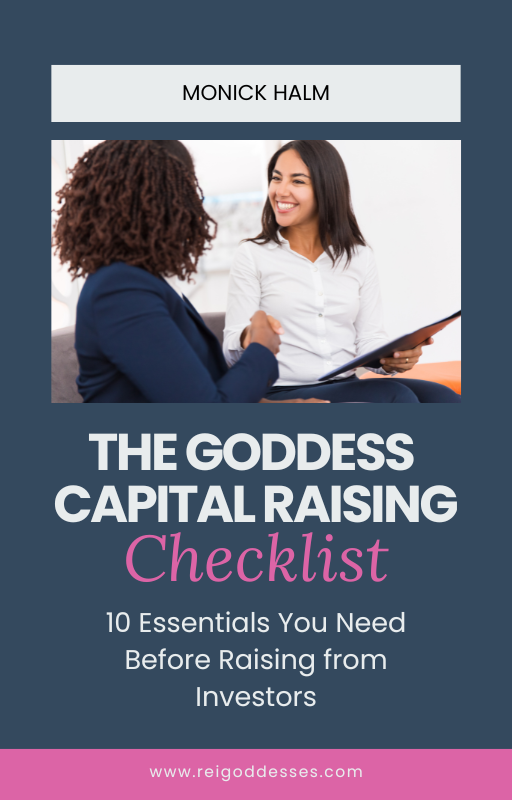What Will Your Legacy Be?
May 17, 2018
I received such terrible news yesterday - a friend passed away from cancer just 5 months after giving birth to her son. In fact, she was diagnosed with a stage 4 cancer the day after she gave birth. It's devastating.
Between the time of her diagnosis and her passing, she shared a lot on Facebook about what she was going through and what she was feeling. One of her worries was the legacy she would leave for her son.
Are you thinking about what kind of legacy you want to leave future generations? The sooner you start building your legacy the better.
Have you considered the question, how long you want your legacy to endure?
One generation? Two generations? In perpetuity?
As we age, our legacy becomes more significant to many of us. If your goal is to leave a legacy which will last generations, consider building two types:
1) Financial Legacy
2) Knowledge Legacy
One without the other will handicap the chances of your legacy lasting into the next generation.
Building a financial legacy and knowledge legacy should go hand in hand. Leaving financial wealth without teaching your descendants how to make and preserve money as you did will ensure the evaporation of your fortune.
How quickly can a fortune disappear?
In 60% of cases where a family’s fortune is blown, it’s usually exhausted in one generation by the children of the person who created the wealth, according to Roy Williams, president of wealth consultancy The Williams Group. In 90% of the cases where a fortune is blown, it's gone by the second generation, by the time the grandchildren die.
Think about that -- 90% of family fortunes are gone by the second generation. Don’t let this be you.
Williams cited two factors contributing to the loss of wealth in these cases: (1) uninhibited spending and (2) lack of ambition.

The most famous and extreme example of squandered wealth in the U.S. is the Vanderbilts. Cornelius “Commodore” Vanderbilt, the patriarch, built his fortune from railroads and shipping during the mid-1800s. At the time of his death, he was worth over $200 billion in today's dollars. That is well above Jeff Bezos and Bill Gates.
Yet his children - and especially, his grandchildren - lived lavishly and did little to preserve the family fortune. By the 1970s, the family held a reunion with 120 members attending, and there was not one millionaire among them, wrote Michael Klepper and Robert Gunther in their book The Wealthy 100.
Amazingly, Commodore Vanderbilt foresaw this happening as he often lamented publicly that he didn’t think his children had what it took to build upon the family wealth. He was right. If only he had instilled in his kids the financial knowledge to grow or at least to preserve his wealth.
To avoid the Vanderbilt mistakes, as you’re building your wealth, teach your children and grandchildren how to replicate your efforts so they can build their own wealth. But first, you have to build your own wealth before you can teach your children how to do it.
We have the Real Estate Investor Goddesses Wealth Builder's Program starting in June to show you how to do that.
Building wealth is not about how much you earn. A doctor can earn $700,000 a year but if he’s spending it all and not leaving anything to invest in wealth-producing assets, he will fail at not only creating generational wealth but at creating wealth in his own lifetime.
It doesn't take an income of hundreds of thousands of dollars to create wealth though. We often hear stories of people with modest jobs who secretly manage to build massive fortunes. I recently read in the New York Times the story of a legal secretary who was secretly a multi-millionaire. When she died at 96, she donated $8.2 million to charity.
Across the various stages of wealth building, there is perhaps no more important crossroads than when your income starts to exceed your expenses leaving you with a surplus.
What you do with this surplus will determine your chances of building generational wealth.
What type of investment will give you the best chance of building true wealth?
What we can learn from the old money families like the Rockefellers and Hiltons whose wealth has endured is that to build generational wealth, the key is to invest in income-producing assets to grow that wealth exponentially.
The Rockefellers and Hiltons invested their wealth in income-producing real estate and businesses and reinvested profits back into similar assets thereby building exponential wealth that continued to pay out long after their deaths.
Want to learn how to build wealth through income-producing real estate investments? Join the Real Estate Investor Goddesses Wealth Builder Program starting in June. In the Wealth Builder program you'll learn how to invest in cash flowing real estate and start building your financial legacy. You'll learn wealth building strategies, processes, and actions that you can pass onto your heirs along with dedication to hard work and ambition.
In other words, go out and make your fortune and while you’re making it, involve your children. Teach them what you’ve learned so they can build on what you leave behind. Create a legacy that will last generations.


